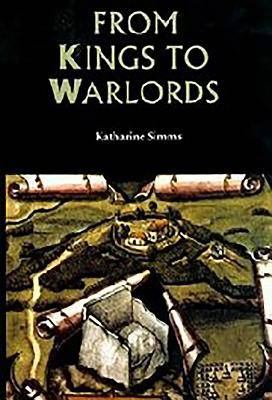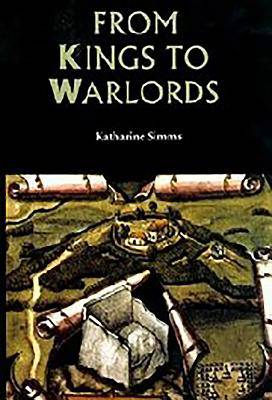
- Afhalen na 1 uur in een winkel met voorraad
- Gratis thuislevering in België vanaf € 30
- Ruim aanbod met 7 miljoen producten
- Afhalen na 1 uur in een winkel met voorraad
- Gratis thuislevering in België vanaf € 30
- Ruim aanbod met 7 miljoen producten
Zoeken
From Kings to Warlords
The Changing Political Structure of Gaelic Ireland in the Later Middle Ages
Katharine Simms
€ 59,95
+ 119 punten
Omschrijving
The Norman invasion of Ireland (1169) did not result in a complete conquest, and those native Irish chieftains who retained independent control of their territories achieved a recovery of power in the later middle ages. Katharine Simms studies the experience of the resurgent chieftains, who were undergoing significant developments during this period. The most obvious signs of change were the gradual disappearance of the title ri (king), and the ubiquitous presence of mercenary soldiers. On a deeper level, the institution of kingship itself had died, as is shown by this study of the election and inauguration of Irish kings, their counsellors, officials, vassals, army, and sources of revenue, as they evolved between the twelfth and sixteenth centuries. Sources such as the Irish chronicles, bardic poetry, genealogies, brehon charters and rentals, family-tract and sagas are all used, in addition to the more familiar evidence of the Anglo-Norman administration, the Church, and Tudor state papers. Dr KATHARINE SIMMS lectures in the Department of Medieval History, Trinity College, Dublin.
Specificaties
Betrokkenen
- Auteur(s):
- Uitgeverij:
Inhoud
- Aantal bladzijden:
- 202
- Taal:
- Engels
- Reeks:
- Reeksnummer:
- nr. 7
Eigenschappen
- Productcode (EAN):
- 9780851157849
- Verschijningsdatum:
- 26/03/1987
- Uitvoering:
- Paperback
- Formaat:
- Trade paperback (VS)
- Afmetingen:
- 156 mm x 233 mm
- Gewicht:
- 303 g

Alleen bij Standaard Boekhandel
+ 119 punten op je klantenkaart van Standaard Boekhandel
Beoordelingen
We publiceren alleen reviews die voldoen aan de voorwaarden voor reviews. Bekijk onze voorwaarden voor reviews.







